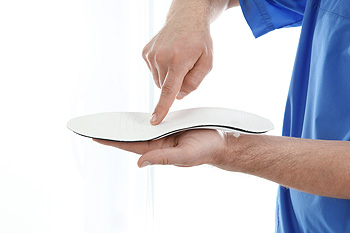Items filtered by date: August 2023
Are Orthotics Right for You?

Orthotics are foot devices aimed at correcting various foot problems. Many people consider them without a clear understanding of their potential benefits and limitations. Custom foot orthoses, orthopedic shoes, and similar corrective devices can be helpful in specific medical situations, with high arches being one such condition where they can help a lot. A significant challenge with orthotics is ensuring that they are properly prescribed and skillfully crafted. Podiatrists can provide expert assessment and custom orthotics for various needs involving biomechanical issues, such as plantar fasciitis, arthritis, diabetes-related foot problems, and metatarsalgia. However, their effectiveness for most other foot problems, even common ones like repetitive strain injuries is less clear as these are complex problems that go beyond biomechanics. If you have problems with your feet, it is suggested that you make an appointment with a podiatrist who can provide a thorough examination of your feet and prescribe orthotics if they are right for you.
If you are having discomfort in your feet and would like to try orthotics, contact Kent DiNucci, DPM from Ankle and Foot Clinic . Our doctor can provide the care you need to keep you pain-free and on your feet.
What Are Orthotics?
Orthotics are inserts you can place into your shoes to help with a variety of foot problems such as flat feet or foot pain. Orthotics provide relief and comfort for minor foot and heel pain but can’t correct serious biomechanical problems in your feet.
Over-the-Counter Inserts
Orthotics come in a wide variety of over-the-counter inserts that are used to treat foot pain, heel pain, and minor problems. For example, arch supports can be inserted into your shoes to help correct overarched or flat feet, while gel insoles are often used because they provide comfort and relief from foot and heel pain by alleviating pressure.
Prescription Orthotics
If over-the-counter inserts don’t work for you or if you have a more severe foot concern, it is possible to have your podiatrist prescribe custom orthotics. These high-quality inserts are designed to treat problems such as abnormal motion, plantar fasciitis, and severe forms of heel pain. They can even be used to help patients suffering from diabetes by treating foot ulcers and painful calluses and are usually molded to your feet individually, which allows them to provide full support and comfort.
If you are experiencing minor to severe foot or heel pain, it’s recommended to speak with your podiatrist about the possibilities of using orthotics. A podiatrist can determine which type of orthotic is right for you and allow you to take the first steps towards being pain-free.
If you have any questions please contact our office located in Omaha, NE . We offer the newest diagnostic and treatment technologies for all your foot and ankle needs.
